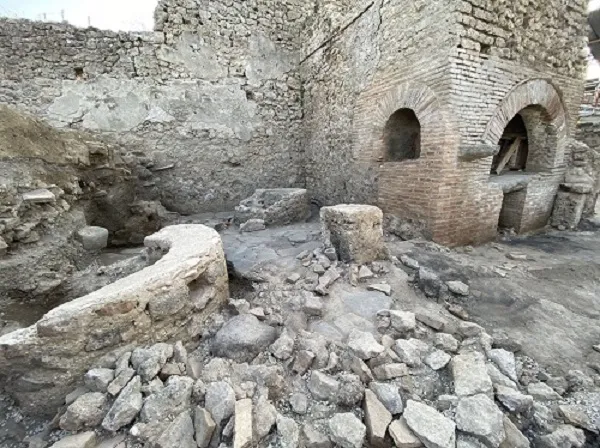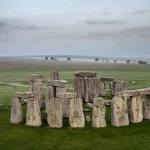
A prison bakery where enslaved people were locked up with donkeys and forced to grind grain essential to the baking of bread has been identified by archaeologists at Pompeii Archaeological Park, the site announced on Friday.
The cramped room contains only small windows secured with iron bars at the top of the wall. The floor still has indentations remaining from the animals that would have walked together, blindfolded, for hours in coordinated labor.
It is “a space in which we have to imagine the presence of people of servile status,” Pompeii’s director Gabriel Zuchtriegel said in a statement. “It is the most shocking side of ancient slavery […] reduced to brute violence”.
The bakery was only one part of the working quarters in a much larger residential structure with well-preserved frescos.
This is not the first time quarters for the enslaved have been uncovered at Pompeii. Earlier this year, for instance, archaeologists found a small bedroom used by enslaved people, as well as a middle class home. These discoveries shed additional light on enslaved conditions in the ancient world.
Mount Vesuvius erupted in 79 CE, burying nearby cities in a thick layer of ash, which preserved some of the ancient Roman residents and their dwellings.
These most recent excavations are part of a larger project aimed at securing the slopes around unexplored areas of the ancient Roman city. Funding from the European Union has allowed conservators and researchers to undertake new efforts at the archaeological park in recent years.

